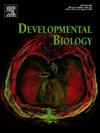PRMT3 gene expression and methylation levels in arrested embryos: Implications for developmental arrest defects
IF 2.5
3区 生物学
Q2 DEVELOPMENTAL BIOLOGY
引用次数: 0
Abstract
Embryos generated through in vitro fertilization (IVF) frequently experience developmental arrests or blocks, which significantly reduces the success rate of IVF therapy. Recent studies have shown that the protein arginine methylase 3 (PRMT3) plays a crucial role in the regulating of gene expression during early embryonic development. However, the exact regulatory mechanisms of PRMT3 involved in early embryonic development are still unclear. In this study, we used discarded arrested and polyspermic embryos from IVF for experiments, employing confocal techniques and qRT-PCR to examine PRMT3 expression and changes in H4R3me2a methylation during various stages of early development. Furthermore, PRMT3 was re-expressed in the arrested embryos to observe their subsequent development. Our findings revealed that PRMT3 nucleic acid and protein were significantly lower in arrested embryos than in control embryos (P < 0.05). Additionally, methylation levels of H4R3me2a were significantly lower in arrested embryos (P < 0.05). Re-expression of PRMT3 could partially rescue embryos that are developmentally arrested, and even a few arrested embryos have the potential to develop into morula or blastocysts. In summary, the reduction or deletion of PRMT3 gene in early embryo may lead to developmental arrested defects. Therefore, it is crucial to regulate the expression and functioning of PRMT3 for the proper development of early embryos, and further research is required to investigate potential therapeutic interventions for embryonic development arrest in vitro.

胚胎中PRMT3基因的表达和甲基化水平:对发育停止缺陷的影响。
通过体外受精(IVF)产生的胚胎经常经历发育停滞或阻滞,这大大降低了体外受精治疗的成功率。最近的研究表明,蛋白精氨酸甲基化酶3 (PRMT3)在胚胎早期发育过程中调控基因表达起着至关重要的作用。然而,PRMT3参与早期胚胎发育的确切调控机制尚不清楚。在本研究中,我们使用试管婴儿(IVF)丢弃的捕获胚胎和多精子胚胎进行实验,采用共聚焦技术和qRT-PCR检测了早期发育不同阶段PRMT3的表达和H4R3me2a甲基化的变化。此外,PRMT3在冻结胚胎中重新表达以观察其后续发育。我们的研究结果显示,冻结胚胎的PRMT3核酸和蛋白明显低于对照胚胎(P
本文章由计算机程序翻译,如有差异,请以英文原文为准。
求助全文
约1分钟内获得全文
求助全文
来源期刊

Developmental biology
生物-发育生物学
CiteScore
5.30
自引率
3.70%
发文量
182
审稿时长
1.5 months
期刊介绍:
Developmental Biology (DB) publishes original research on mechanisms of development, differentiation, and growth in animals and plants at the molecular, cellular, genetic and evolutionary levels. Areas of particular emphasis include transcriptional control mechanisms, embryonic patterning, cell-cell interactions, growth factors and signal transduction, and regulatory hierarchies in developing plants and animals.
 求助内容:
求助内容: 应助结果提醒方式:
应助结果提醒方式:


